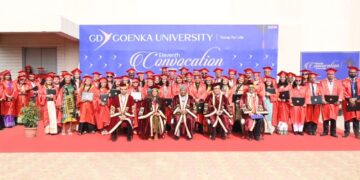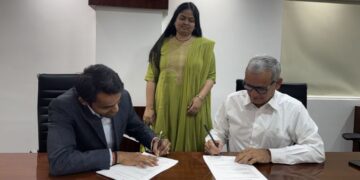UGC Draft Regulations 2025 Spark Political and Academic Controversy
Higher education regulator, the UGC, has extended the last date to submit the feedback on draft UGC regulations, 2025, UGC till February 28 “in view of requests received from stakeholders”. Earlier it was open till Feb 5.
It is pertinent to mention that the opposition ruled states are opposing the draft vehemently. Following assembly resolutions urging the Centre to withdraw the draft UGC norms by Tamil Nadu and Kerala legislative assemblies soon after the draft was released, on Feb 5 the states of Karnataka, Himachal Pradesh, Jharkhand, Kerala, Tamil Nadu and Telangana passed a 15-point resolution rejecting the draft UGC norms, arguing that they undermine the autonomy of states.
 The draft University Grants Commission (UGC) regulations, officially titled the UGC (Minimum Qualifications for Appointment and Promotion of Teachers and Academic Staff in Universities and Colleges and Measures for the Maintenance of Standards in Higher Education) Regulations 2025, have triggered a major political and academic controversy in India. Released for public consultation on January 6, with a feedback deadline of February 5, these regulations are intended to replace the existing 2018 guidelines. However, opposition-ruled states have slammed them as ‘anti-federal’ and an infringement on state autonomy.
The draft University Grants Commission (UGC) regulations, officially titled the UGC (Minimum Qualifications for Appointment and Promotion of Teachers and Academic Staff in Universities and Colleges and Measures for the Maintenance of Standards in Higher Education) Regulations 2025, have triggered a major political and academic controversy in India. Released for public consultation on January 6, with a feedback deadline of February 5, these regulations are intended to replace the existing 2018 guidelines. However, opposition-ruled states have slammed them as ‘anti-federal’ and an infringement on state autonomy.
One of the most contentious provisions in the draft regulations is the revised process for appointing vice-chancellors (VCs). The proposed changes significantly increase the role of the central government, effectively reducing state governments’ influence in appointing the heads of state-run universities.
According to Section 10.0 of the draft, the Search cum Selection Committee for VCs will now comprise: A nominee of the Visitor/Chancellor, who will serve as Chairperson, a nominee each of the UGC Chairman, and the university’s apex body (Syndicate/Senate/Executive Council/Board of Management or equivalent). This represents a major departure from the 2018 regulations, which only mandated a UGC nominee in a state-appointed committee. The new provision gives more power to central appointees and reduces state government control over university leadership.
States like Tamil Nadu, Kerala, Andhra Pradesh, West Bengal, and Karnataka have strongly opposed this move, arguing that it infringes upon their constitutional rights. Most state universities are funded by state governments, and higher education ministries at the state level have traditionally played a significant role in shaping university administration. “This provision undermines state autonomy, academic integrity, and the development of state universities,” stated a letter by Tamil Nadu Chief Minister, M K Stalin to his counterparts.
Another controversial aspect of the draft regulations is the provision allowing non-academics—industry leaders, bureaucrats, and public-sector officials—to be appointed as vice-chancellors. Traditionally, VCs have been senior academics with years of research and teaching experience. Many educationists view this change as a dilution of academic leadership and a disruption to career pathways in higher education.
“Innovation, inclusiveness, community engagement, and institution-building all have their place, but a university must be headed by an academic,” argues Dr. Brajesh Kumar Tiwari, an associate professor at JNU who writes on higher education policies. “Like a professor can’t step into the shoes of a CEO, similarly, an industry leader or bureaucrat can’t do justice to running an academic institution.”
Supporters of this provision argue that professionals from outside academia can bring fresh perspectives and foster innovation. However, critics warn that such a shift risk turning universities into corporatized institutions rather than centers of learning and research.
Adding to the controversy, the UGC’s decision to grade higher education institutions (HEIs) based on their implementation of the National Education Policy (NEP) 2020 has sparked further resistance. This grading will determine various privileges and entitlements under UGC regulations. The process, announced on January 3, is also open for feedback for a month before it is finalized.
Opposition parties argue that this system could be used as a tool to favor institutions aligned with the central government’s policies while disadvantaging those that resist NEP reforms. Some states are also concerned that this grading could impact funding and accreditation statuses.
The draft regulations introduce significant changes in faculty recruitment and promotion criteria, particularly by placing more emphasis on ‘notable contributions’ in pedagogy development, consultancy, research in the Indian Knowledge System, community engagement, and startup ventures. This shift has led to concerns that traditional academic roles of teaching and research are being sidelined.
“These erratic and frequent changes in criteria disrupt academic career plans and discourage long-term investment in teaching and research,” writes Prof. Manoj Kumar Jha, a DU professor of social work and Rajya Sabha MP, in an opinion piece for The Indian Express (Jan 30). “Without certainty and fairness, faculty will remain vulnerable to the whims of administrators.”
At the same time, the UGC has proposed an exemption from the UGC-NET qualifying examination for Ph.D. holders and engineering postgraduates seeking assistant professor positions. While some welcome this move as a relief for aspiring academics, others fear it could lower teaching standards if not implemented carefully.
The UGC’s draft regulations have ignited a major political battle, with opposition-ruled states taking a firm stand against what they perceive as an overreach by the central government. With the deadline for feedback fast approaching, both the academic and political landscapes remain heated. Whether the government will address these concerns or push forward with the regulations in their current form remains to be seen, but one thing is certain—the debate over higher education governance in India is far from over.












